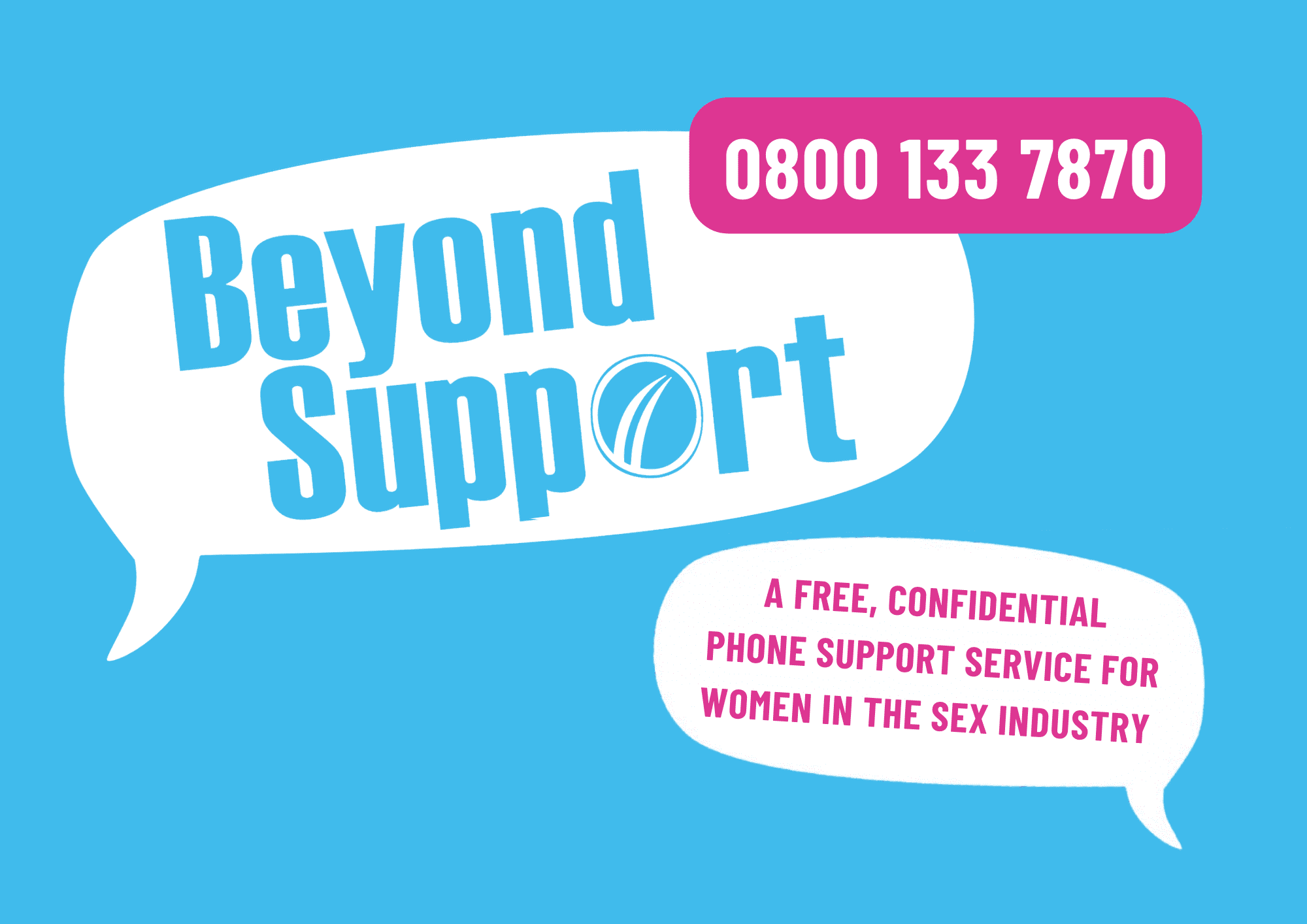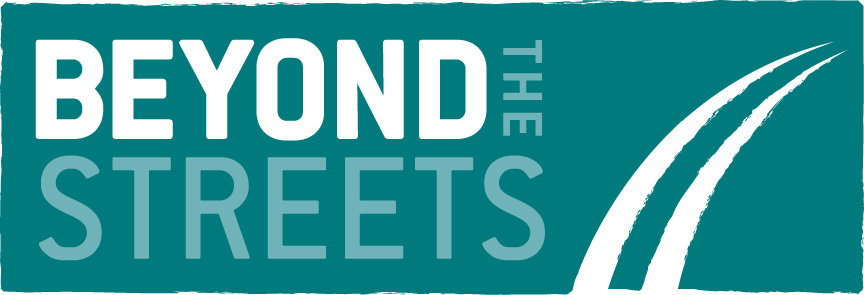Beyond Support was created when women from across the country began to contact our main office at Beyond the Streets looking for support. They told us that they didn’t know where to find support for women selling sex.

Geography is a barrier to accessing specialist services, with specialist support available in some areas and not in others.
We often call this the ‘postcode lottery’ of support. Our Beyond Support project looks to overcome this barrier through its remote model.
In our support service, we have no predefined journey, or steps a woman needs to complete. Instead, we encourage her to identify her goals and support her as she works towards them.
Change is long term, and women often face many setbacks. We provide a non-judgemental, trauma-informed space to listen, however long it may take a woman to achieve her goals.
We don’t work alone and know that working in partnership with local services provides the best support for women to address their self-identified needs.
We build trust so we can advocate on her behalf to ensure she can access these services and keep accessing them even when her trauma may cause her or the service to disengage.
With permission we can re-tell her story for her with new services if she would like us to, so she doesn’t have to keep reliving past trauma.

Free, Confidential, Specialist, Trauma Informed, Anonymous, 1:1
Being a remote, telephone support service means that women can speak to us in a place that feels comfortable to them, whist on a walk, in their car, at their accommodation or a friend’s house. She can do so at a time that is convenient for her.
We are able to offer support to people who don’t want to speak face to face, which can be especially comforting in a sector where often a woman will have previously faced stigma and judgement or be concerned that she will; which can become a barrier to disclosing.
One woman shared with us how it took years to gain the confidence to contact us after seeing how a previous support worker, in a different non-specialist service she engaged with, reacted last time she shared that she was selling sex. She found comfort in talking without seeing the person on the end of the phone.
We aim to make our service accessible to all women and work hard to remove any barriers; for example, we are currently supporting a mute individual through offering her our services via text. We can be flexible about how and when women engage with Beyond Support, they can stay with the support for up to 18 months, and because of our awareness of how trauma impacts life, we can be flexible about how this support time is allocated.
We know that it takes longer than a set of 6 sessions to offer appropriate care, so we give women the chance to engage at her pace, to build the trusting relationship needed to process traumatic experiences. Crucially, we do not penalise women for missing appointments. Each woman’s journey reflects her own personal situation. What change looks like and the time it takes is as individual as the women themselves.
We are here for all women, no matter what their situation may be.
The women we journey alongside have a range of current or past experiences including from those involved in selling sex in massage parlours, due to coercion, or in order to survive; to those who are escorting, sugar daddying or on Only Fans. Women can contact us even if they are at the point of considering involvement in selling sex. We will listen with no judgement, and with compassion to all those who reach out.
Improved safety
Improved confidence and self-agency
Improved finances
Improved EET (employment, education, and training status)
Improvements in housing
Improved mental health (securing access to partner councillors)
Improved physical and sexual health.
Improvements in the levels of support network, and reduced isolation


Share this page